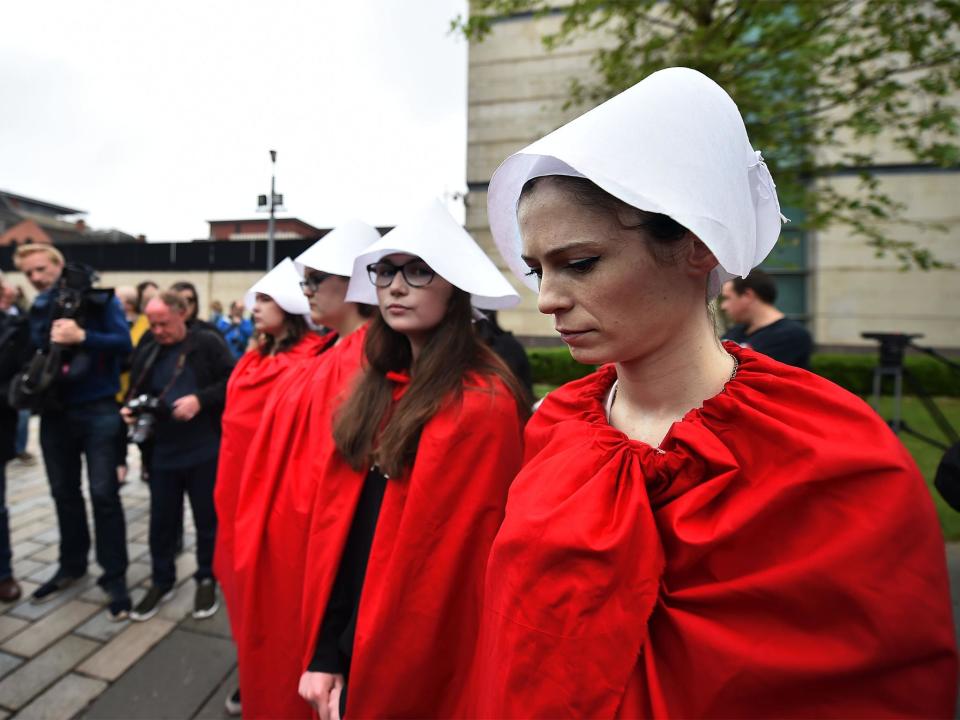The fact that we're considering making misandry a hate crime should concern everyone who believes in equality

Women, eh? Always saying they want equal treatment, then the moment it’s offered to them, they start to complain.
Take the recent proposals to make misogyny a hate crime. Given current levels of street harassment, sexual assault and male violence against women, this can only be a good thing. But why stop there? Why not make misandry – prejudice against men and boys – a hate crime, too? Surely that way no one is left out.
Last month it was announced that a Law Commission review would look at whether offences driven by hatred of women should be reclassified. At present, certain characteristics – such as disability, race and sexual orientation – have a protected status. Sex is not one of them.
Feminists have argued that the degree to which misogyny underpins crimes committed against women means this has to change. However, it has since emerged that the commission will also be reviewing whether misandry deserves to be included in the new definitions. According to Home Office minister Baroness Williams, this is in response to what “the public and other organisations are telling us”.
As a feminist, I confess that I am not happy about this. I am also well aware of the way in which such unhappiness will be perceived by many. Typical feminist, right? I say I want equality, but I actually want special treatment. I say I think women are strong, but I actually want them to be weak. I say feminism isn’t about hating men… but actually, it is.
I am familiar with all of these arguments, and the way in which they are used, time and again, to recast women’s demands for recognition of their unequal status as requests for validation of their victimhood. It seems there’s nothing women can have – not even their status as a marginalised sex class – that men will not expect them to share.
The argument that misogyny has its counterpart in misandry – and that only a misandrist would deny it – is superficially attractive. There’s a satisfying symmetry to it, not to mention a degree of truth. Everyone is, potentially, as much a victim as an oppressor. All things being equal, everyone ought to be treated the same.
The trouble is, all things are not equal. That is rather the point of hate crime legislation in the first place. All of our actions take place within intersecting social hierarchies which place some groups at the top and others at the bottom.
Attempts to make misandry the equivalent of misogyny rely on two misconceptions: first, that gender is a spectrum as opposed to a hierarchy; and second, that victimhood is in fact a source of power and privilege.
It is true that men and boys are harmed by the insistence that all male people be masculine. True, too, that it hurts for all members of a group to be judged by the actions of a violent minority. Nevertheless, these are the conditions upon which the perpetuation of male supremacy relies. To ask that the negative side-effects of being a member of the oppressor class be granted the same status as those of being a member of the oppressed class is to miss the point. Any suffering that comes from wielding power can only be relieved once that power has been relinquished.
So-called men’s rights activists (MRA) routinely portray women’s marginalised status as something to be envied. Feminists are accused of milking historic oppressions in order to appropriate power and resources in a world where positive discrimination in favour of women is rife.
It’s been said that when you’re used to privilege, equality feels like oppression. This, it seems to me, is what usually happens when men complain of misandry. Women take an inch and all male onlookers see are miles and miles.
I suspect it is unlikely that misandry will ever be made into a hate crime. That there is even the slightest possibility that it could be remains hugely concerning. It would undermine the most basic feminist arguments in favour of sex-based protections for women, effectively endorsing the MRA claim that “reverse sexism” exists.
It would also provide further opportunities for abusive men to recast women’s resistance to their demands as “hate”. Women and girls face enough censure for any failure to accommodate men and boys. Where would we be if the latter could start to claim our treatment of them was motivated by anti-male bigotry?
Misogyny should recognised as a hate crime for the same reason that misandry should not be: women and girls are systematically oppressed and exploited by men and boys. This does not always have to be the case. We can have a world in which all things are equal, but first, let’s stop telling women to pretend we’re already there.

 Yahoo News
Yahoo News 